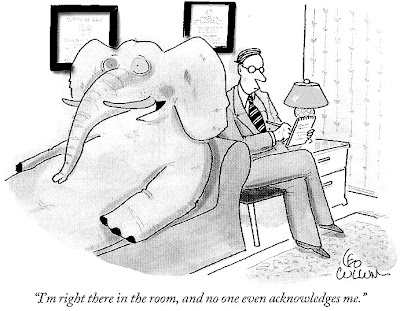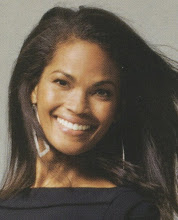Color me kooky, but when friends told me that I had to see Lee Daniels' The Butler, I took them at their word.
"It's ah-MAAAAZE-ing!" raved one . "EXCELLENT!!!," exclaimed another. "The best film I've seen on race relations... ever!" promised a third.
High praise for a director who once cast Halle Berry as Leticia Musgrove in Monster’s Ball: a role Angela Bassett famously turned down saying, “I wasn’t going to be a prostitute on film... It’s about putting something out there you can be proud of 10 years later.” Granted, Berry subsequently won a Best Actress Oscar for her star turn. But true to Bassett’s conviction, 12 years later I still cringe at the soft core visual of Leticia moaning “I want you to make me feel good. Can you make me feel good?” This, as she stripped for her would-be (if stunned by the out-of-the-blue overture) lover. A man she’d met just hours prior and who, coincidentally, had overseen the execution of Leticia's husband.

Daniels also cast Mo’Nique as Mary in Precious. Her tour de force portrayal of the title character’s mother earned the actress an Academy Award for Best Supporting Actress. But thanks to the graphic depiction of Mary’s unrelenting emotional and physical abuse of her child-- including dropping a television set down a stairwell, with the intention of having it land on Precious’ head-- I still struggle to draw a distinction between Mary and any number of Loony Tunes cartoon characters with an axe to grind and a weapons cache at their disposal.
Personally, I prefer a good story that captivates and compels my attention without stooping to sentimentality, melodrama or simplistic black & white depictions of people as all-good or all-evil. By that measure, Beasts of the Southern Wild is my idea of perfection in film making. Scenes like the one where Hushpuppy is placed in a government facility and transformed overnight from a fearless spitfire (who once ran free in nothing more that an undershirt, shorts and rain boots under a cloud of untamed hair), to a dopplegänger of her former self (in a government-issued blue dress; white, patent leather Mary Janes; and hair pressed and combed into submission) leave me breathless not because of what is stated, but for what is implied. In this case: the capture and taming of a once free spirit. The suppression of individuality. The homogenization of Hushpuppy.
Given my preference restrained movie making, it’s anyone’s guess why I might have expected Daniels to deliver something as subtle and nuanced as Beasts of the Southern Wild. Or a film that would be as quiet, understated and dignified as the former White House butler, Eugene Allen, http://articles.washingtonpost.com/2008-11-07/politics/36906532_1_white-house-black-man-history whose real-life story inspired the screenplay for The Butler.
Perhaps the Downton Abbey-like images I’d seen on movie posters and in film previews bolstered my belief that service would not be confused with servitude in Daniels’ film. That the undertone would be elegant. And that a butler’s work might be elevated to art form through careful storytelling and refined cinematography. Certainly my friends’ endorsements, the abundance of critical praise heaped on The Butler, and the fact that the film reigned as #1 at the box office for three straight weeks (before getting served by Vin Diesel’s Riddick last weekend) helped weaken my defenses. So I threw caution to wind and finally saw the film.
Perhaps the Downton Abbey-like images I’d seen on movie posters and in film previews bolstered my belief that service would not be confused with servitude in Daniels’ film. That the undertone would be elegant. And that a butler’s work might be elevated to art form through careful storytelling and refined cinematography. Certainly my friends’ endorsements, the abundance of critical praise heaped on The Butler, and the fact that the film reigned as #1 at the box office for three straight weeks (before getting served by Vin Diesel’s Riddick last weekend) helped weaken my defenses. So I threw caution to wind and finally saw the film.
Next time, I won’t be so reckless.
I suppose The Butler has merit as a history lesson, for those too lazy to actually read a book, but its Greatest Hits of Black History compilation approach to screen-writing struck me an inadequate substitute for narrative and character development. Likewise, the butler’s front row seat to every human & civil-rights trail, trouble and tribulation-- from a white plantation owner raping one of his black field workers within earshot of the victim’s husband and child, to Cecil’s son’s pow-wow with Martin Luther King, Jr. moments before King’s assassination-- undermined the gravity of of the events, diluted the intended impact and gave the film a Forrest Gump-esque quality: minus the wink-and-a-nod irony that made the Tom Hanks movie so utterly charming and original.
Casting on The Butler was another problem. The star-studded cameos felt more like a distracting parlor game (Jane Fonda, and Robin Williams, and John Cusak. Oh, my!) than a legitimate means to animate one dimensional characters. And watching an artist of Forrest Whittaker’s caliber share the screen with supporting actors who could not bear the weight of his genius was a desecration on par with seeing the Hope Diamond in a tin setting. Like seeing a giraffe in a parking lot, I kept wondering “What is that magnificent creature doing in this unexceptional setting?!” Happily, the one deviation from that norm was newcomer David Oyelowo, the young man who played Cecil’s son, Louis, with a deft touch despite the disjointed, clunky script with which he had to work.
In her role as Cecil’s wife, Gloria, Oprah Winfrey proved that the charisma responsible for making her such ratings and marketing juggernaut on the small screen is actually enhanced on the silver screen. But for all the leaning in Winfrey's presence inspired, the rate of emotional return was not commensurate with time and close-ups devoted to her character. To be fair, there were moments of absolute truth-- none more so than when Gloria slaps Louis across the face for disrespecting his father, then reminding her son that, “Everything you are and everything you have is ‘cause of that butler.” And her cuteness factor was off the charts when she donned a black & white jumpsuit, giant afro and hoop earrings in an homage to 70’s chic. But Gloria’s stuck-on-sourpuss tone struck me as monotonous. And her occasional out-of-left-field mood swings were unfaithful to the character. In one such instance, Gloria tells Louis “...now, get that low-class bitch outta’ my house,” after finding fault with his girlfriend. In another, Gloria tells a heart-broken Cecil (who has just left the newly-widowed Jackie Kennedy bloodied and broken in the White House) that she doesn’t care about a the First Lady’s plight. This, in spite of Gloria’s near obsession with how many pairs of shoes Jackie owned, and her constant badgering of Cecil to shed some light on the contents Jackie’s closet.
The soundtrack, though beautiful, was as discordant as Gloria’s multiple personalities. And while it swelled in all the right places, I was left feeling more manipulated by the score than moved by the material.
Then again, maybe I'm just out of step with what people really want when they go to the movies.
Daniels' flare for mega-drama has certainly served him (and his leading ladies) well in the past. And I pray that fortune will smile upon his leading man this time around. But whether or not Forrest Whittaker takes home a statuette next March for his pitch-perfect depiction of Cecil Gaines, I'll be thinking about Angela Bassett when the Academy Awards roll around. Considering her personal benchmark for excellence. The wisdom of taking the long view in life. And wondering if anybody will think The Butler is as "ah-MAAAAZE-ing!" in 10 years, as they do today.
.jpg)



















.JPG)










